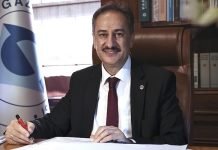Kurdish-language traffic signs in Diyarbakır province were removed once again following a directive by the governor’s office, the Artı Gerçek news website reported on Tuesday.
The Ministry of Interior issued a directive on July 26 mandating that all traffic signs adhere to standards set by Turkey’s General Directorate of Highways (KGM). The directive warned that non-compliance would result in enforcement actions. In response, Kurdish traffic signs were ordered to be removed by governors across several eastern provinces.
The KGM executed the removal of Kurdish traffic signs following the ministry’s directive, but the municipalities reinstalled the signs initially in Van, and subsequently in Diyarbakır, Batman and Mardin.
The signs were removed a second time, underscoring the ongoing tensions over language rights in the region.
According to Mehdi Özdemir, vice chair of the Diyarbakır Bar Association, there are no legal obstacles preventing municipalities from providing public services in different languages.
There is intolerance towards the use of Kurdish, Özdemir says. “This hinders people from using Kurdish in social life and accessing public services in their mother tongue.”
The Turkish state has in the past severely restricted the use of the Kurdish language and strictly denied it official recognition, including at the local and provincial levels, despite the fact that it is the language of the country’s largest minority.
The visibility of Kurdish on TV and in the print media was only made possible in the early 2000s thanks to significant progress made in the country’s bid to become a member of the EU.
Yet, the drift towards nationalism and the ruling Justice and Development Party’s (AKP) alliance with the far-right Nationalist Movement Party (MHP) in the last decade has led to an increase in anti-Kurdish racist attacks.















